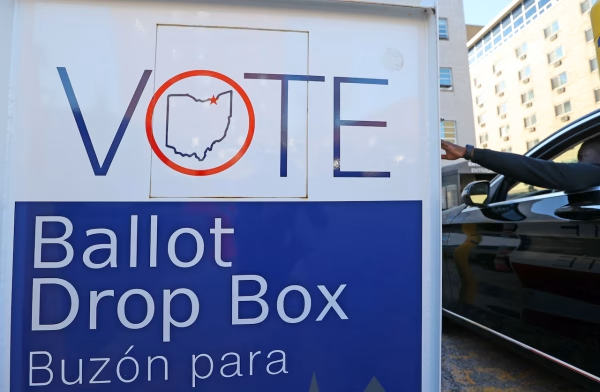Yup'ik-Speaking Voters To Receive Additional Language Assistance In The City Of Bethel, Alaska
City, NARF And ACLU Agree On Voting Rights Act Measures
FOR IMMEDIATE RELEASE
CONTACT: (212) 549-2666; media@aclu.org
ANCHORAGE – Measures providing additional language assistance for Yup'ik speakers at municipal elections in Bethel, Alaska were agreed upon as part of a settlement among the city of Bethel, Native American Rights Fund (NARF), the American Civil Liberties Union and two local Alaska Natives. Yup'ik is the primary language of a majority of citizens in the Bethel region. The settlement agreement follows a lawsuit filed against the city by NARF and the ACLU on behalf of the two local Alaska Natives. The parties look forward to working together to provide Yup'ik-speaking voters with more effective voting assistance.
The lawsuit Nick, et al. v. Bethel, et al., remains pending in the federal district court for the District of Alaska against the State of Alaska. The lawsuit was brought on behalf of the same Alaska Natives who agreed to the current settlement as well as two other Alaska Natives and four tribal governments.
"We are extremely pleased that the city of Bethel has agreed to provide enhanced language assistance to Yup'ik-speaking voters so that they can fully participate in city elections," said NARF attorney Natalie Landreth. "We are confident that the Yup'ik people and other Alaskan Natives will have all the tools they need to exercise the most fundamental act of citizenship, the right to vote."
Under the settlement agreement, the city of Bethel will provide enhanced language assistance to Yup'ik voters, including trained poll workers who are bilingual in English and Yup'ik; sample ballots for election measures in written Yup'ik; a written Yup'ik glossary of election terms; advance notice of translator services; election announcements on the radio; and pre- and post-election reports to the Federal District Court for Alaska tracking the city's efforts.
"The city of Bethel has taken pride in its previous efforts to assist Yup'ik speakers in the election process," said Lori Strickler, the City Clerk for Bethel. "Our primary concern has always been to provide for the needs of our constituents. We are delighted to take further measures that will help ensure that every voter in the city of Bethel can take an equal part in the decisions made in our community."
Jason Brandeis, staff attorney at the ACLU of Alaska, said, "All voters have a constitutional right to be included in the political process, whether their primary language is English or Yup'ik. We are very happy that all parties could agree on the scope of necessary adequate voting assistance, including qualified translators, sample ballots and meaningful outreach to inform Yup'ik voters of their rights."
The ACLU and NARF continue to litigate against the State of Alaska so that all Yup'ik speaking voters in the state can be fully included in the political process.
Alaska is one of just five states covered in its entirety by the language assistance provisions of the Voting Rights Act. Those provisions, sections 4(f)(4) and 203, apply to areas that meet certain threshold requirements for numbers of citizens with limited English proficiency. Section 208 has nationwide applicability and gives "any voter who requires assistance to vote by reason of blindness, disability, or inability to read or write" a right to receive "assistance by a person of the voter's choice." The temporary provisions of the Voting Rights Act, including sections 4(f)(4) and 203, were reauthorized by Congress in 2006 for an additional 25 years.
Attorneys for the Alaska Natives are Landreth and Dr. James T. Tucker of NARF, Brandeis of the ACLU of Alaska and Laughlin McDonald and Brian Sutherland of the ACLU Voting Rights Project. The attorneys for the city of Bethel are Stephen Smith and Marla Goodman Zink of K&L Gates, LLP.
The settlement agreement is online at: www.aclu.org/votingrights/minority/40276lgl20090709.html
More information about the ACLU's work on voting rights is available at: www.aclu.org/voting-rights


